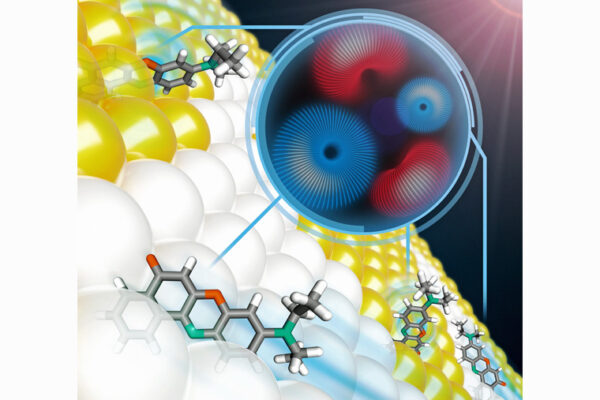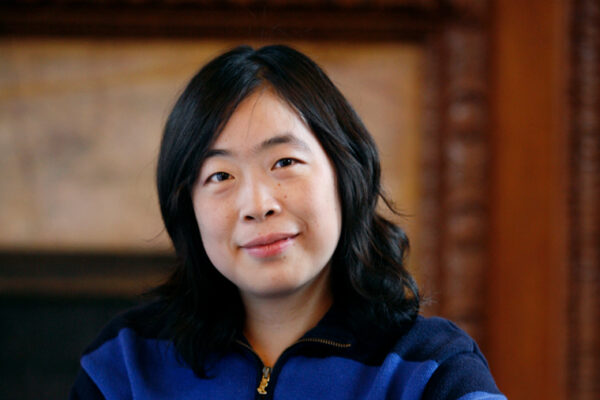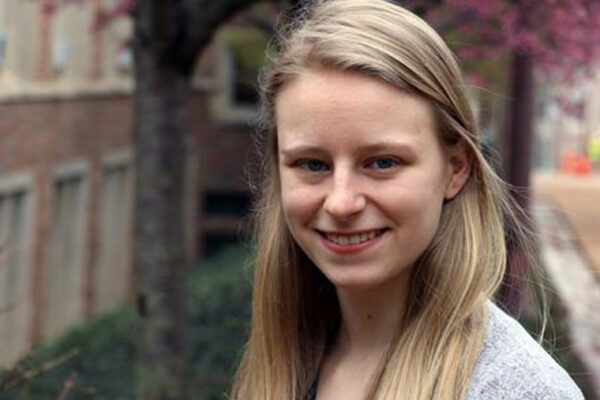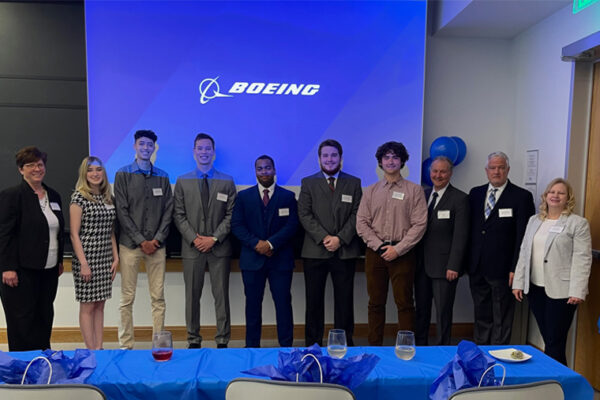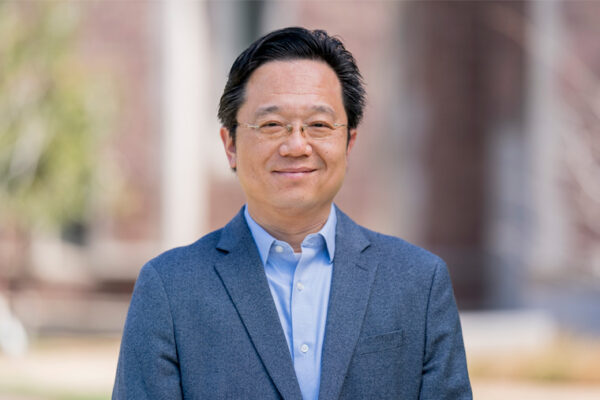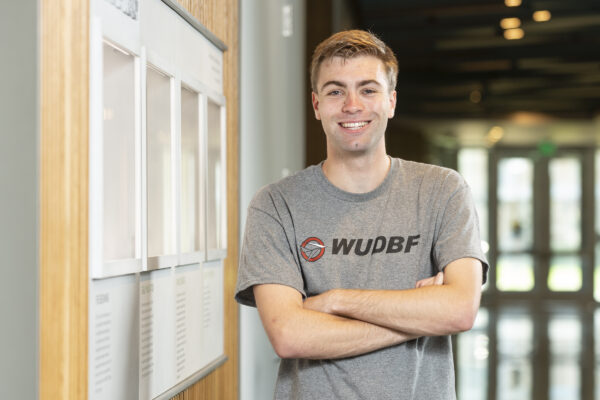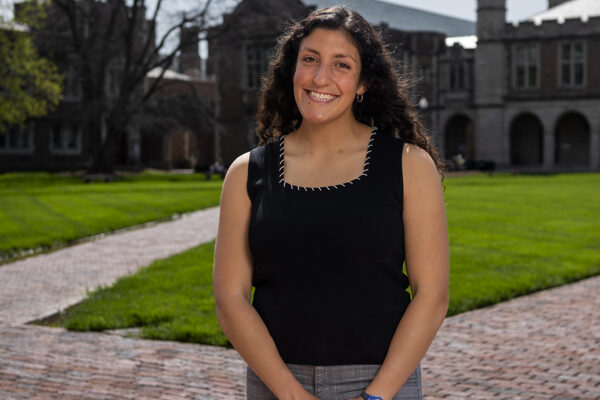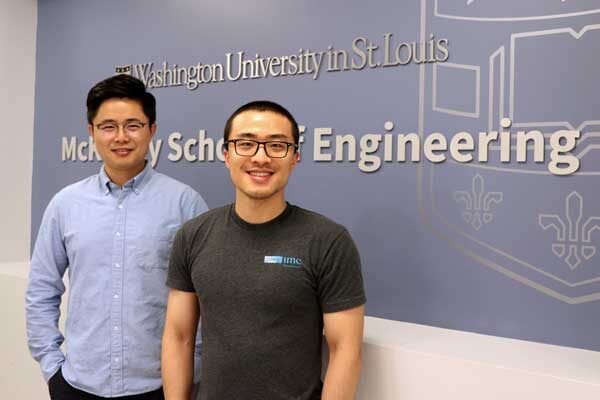Lew lab sheds new light on cell membranes
Researchers in the Lew lab in the McKelvey School of Engineering are using light in novel ways to better image biological samples.
Yang wins German research award
The McKelvey School of Engineering’s Lan Yang has been selected to receive the Friedrich Wilhelm Bessel Research Award. Given by the Alexander von Humboldt Foundation, the award recognizes distinguished scientists in any discipline.
Walker wins Quantrano Prize, other honors
McKelvey School of Engineering undergraduate student Caitlind Walker has received several prizes, including the 2022 Ralph S. Quatrano Prize.
Engineering students chosen for Boeing leadership program
Seven students from the McKelvey School of Engineering have been selected for paid internships as part of Boeing Co.’s new Accelerated Leadership Program.
Lu wins award for most influential paper in real-time systems
Chenyang Lu, the Fullgraf Professor at the McKelvey School of Engineering at Washington University in St. Louis and a preeminent expert in cyber-physical systems, and his co-authors received the 2021 IEEE Real-Time and Embedded Technology and Applications Symposium (RTAS) Influential Paper Award.
New tech can double spectral bandwidth in some 5G systems
Using the properties of a unique class of materials, researchers, including Aravind Nagulu at the McKelvey School of Engineering, may have found a way to dramatically increase the bandwidth available for wireless communications.
Pappu lab untangles more IDR secrets
Rohit Pappu’s latest look at intrinsically disordered regions of proteins explains why some sequences behave in different ways. His paper was published in the Proceedings of the National Academy of Sciences.
Class Acts: Miles Petersen
Miles Petersen always knew he wanted to work in the aviation field. He has been building airplanes with Design Build Fly. Soon, he’ll be building them with aerospace giant Boeing Co.
Class Acts: Elizabeth Saliba
McKelvey School of Engineering senior Elizabeth Saliba is committed to designing a more sustainable future. During her time at Washington University, she has helped design modular classroom prototypes for an elementary school south of St. Louis and a net-zero energy occupational therapy clinic to be built on Delmar Boulevard.
Doctoral engineering students win poster awards
Two students from the McKelvey School of Engineering were honored at a joint conference of the American Water Works Association and the Missouri Water Environment Association.
View More Stories
